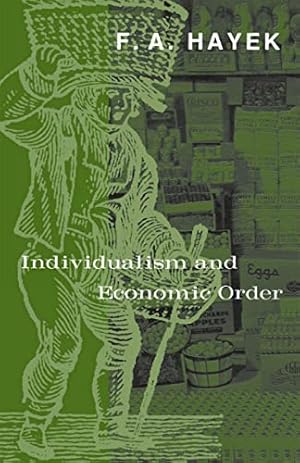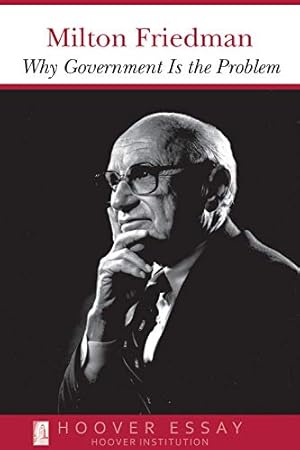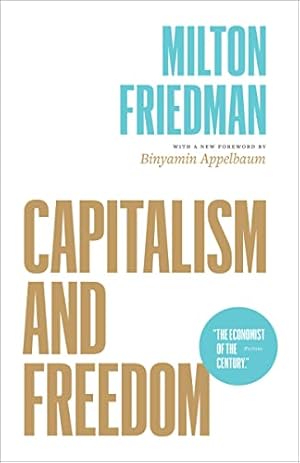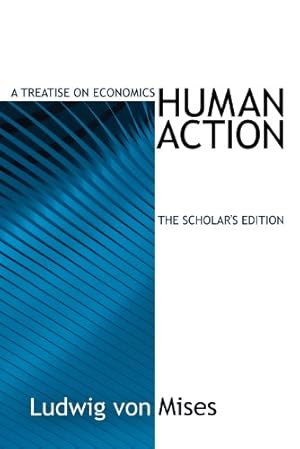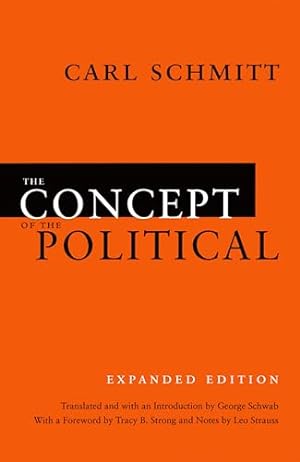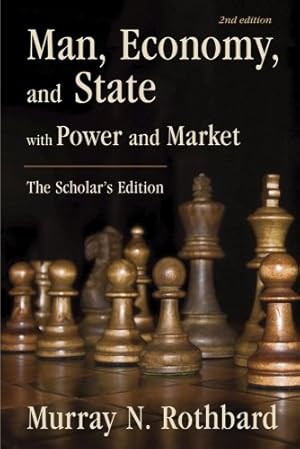Learn more
These promotions will be applied to this item:
Some promotions may be combined; others are not eligible to be combined with other offers. For details, please see the Terms & Conditions associated with these promotions.
- Highlight, take notes, and search in the book
- In this edition, page numbers are just like the physical edition
Your Memberships & Subscriptions

Download the free Kindle app and start reading Kindle books instantly on your smartphone, tablet, or computer - no Kindle device required.
Read instantly on your browser with Kindle for Web.
Using your mobile phone camera - scan the code below and download the Kindle app.

Law, Legislation and Liberty, Volume 1: Rules and Order Kindle Edition
F. A. Hayek made many valuable contributions to the field of economics as well as to the disciplines of philosophy and politics. This volume represents the first section of Hayek’s comprehensive three-part study of the relations between law and liberty. Rules and Order constructs the framework necessary for a critical analysis of prevailing theories of justice and of the conditions which a constitution securing personal liberty would have to satisfy.
- ISBN-13978-0226321233
- PublisherThe University of Chicago Press
- Publication dateMay 17, 2011
- LanguageEnglish
- File size3.1 MB
Kindle E-Readers
- Kindle Paperwhite (5th Generation)
- Kindle Scribe (1st Generation)
- All New Kindle E-reader
- All New Kindle E-reader (11th Generation)
- Kindle Paperwhite (11th Generation)
- Kindle Paperwhite (10th Generation)
- Kindle Voyage
- Kindle Touch
- All new Kindle paperwhite
- Kindle Paperwhite (12th Generation)
- Kindle Oasis
- Kindle Oasis (9th Generation)
- Kindle Paperwhite
- Kindle (11th Generation, 2024 Release)
- Kindle
- Kindle (10th Generation)
- Kindle Oasis (10th Generation)
- Kindle Scribe, 1st generation (2024 release)
Fire Tablets
Shop this series
See full series- Kindle Price:$47.33By placing your order, you're purchasing a license to the content and you agree to the Kindle Store Terms of Use.
Shop this series
This option includes 3 books.
Customers also bought or read
- The Constitution of Liberty: The Definitive Edition (The Collected Works of F. A. Hayek Book 1)
 Kindle Edition$18.35$18.35
Kindle Edition$18.35$18.35 - The Fatal Conceit: The Errors of Socialism (The Collected Works of F. A. Hayek Book 1)
 Kindle Edition$9.99$9.99
Kindle Edition$9.99$9.99 - Theory and History: An Interpretation of Social and Economic Evolution (LvMI)
 Kindle Edition$2.99$2.99
Kindle Edition$2.99$2.99 - Hayek on Hayek: An Autobiographical Dialogue (Supplement to the Collected Works of F.A. Hayek)
 Kindle Edition$31.19$31.19
Kindle Edition$31.19$31.19
Customers who bought this item also bought
Editorial Reviews
Review
From the Back Cover
About the Author
F. A. Hayek (1899–1992), recipient of the Presidential Medal of Freedom in 1991 and co-winner of the Nobel Prize in Economics in 1974, was a pioneer in monetary theory and a leading proponent of classical liberalism in the twentieth century. He taught at the University of Vienna, University of London, University of Chicago, and University of Freiburg.
Product details
- ASIN : B009GJQG2W
- Publisher : The University of Chicago Press (May 17, 2011)
- Publication date : May 17, 2011
- Language : English
- File size : 3.1 MB
- Text-to-Speech : Enabled
- Screen Reader : Supported
- Enhanced typesetting : Enabled
- X-Ray : Not Enabled
- Word Wise : Enabled
- Print length : 194 pages
- Best Sellers Rank: #757,025 in Kindle Store (See Top 100 in Kindle Store)
- #460 in Government & Business
- #462 in Economic Policy & Development (Kindle Store)
- #552 in Economic Conditions (Kindle Store)
- Customer Reviews:
About the author

Friedrich August Hayek (1899–1992), recipient of the Medal of Freedom in 1991 and co-winner of the Nobel Memorial Prize in Economics in 1974, was a pioneer in monetary theory and the principal proponent of libertarianism in the twentieth century. He taught at the University of London, the University of Chicago, and the University of Freiburg. His influence on the economic policies in capitalist countries has been profound, especially during the Reagan administration in the U.S. and the Thatcher government in the U.K.
Customer reviews
- 5 star4 star3 star2 star1 star5 star77%19%4%0%0%77%
- 5 star4 star3 star2 star1 star4 star77%19%4%0%0%19%
- 5 star4 star3 star2 star1 star3 star77%19%4%0%0%4%
- 5 star4 star3 star2 star1 star2 star77%19%4%0%0%0%
- 5 star4 star3 star2 star1 star1 star77%19%4%0%0%0%
Customer Reviews, including Product Star Ratings help customers to learn more about the product and decide whether it is the right product for them.
To calculate the overall star rating and percentage breakdown by star, we don’t use a simple average. Instead, our system considers things like how recent a review is and if the reviewer bought the item on Amazon. It also analyzed reviews to verify trustworthiness.
Learn more how customers reviews work on AmazonTop reviews from the United States
There was a problem filtering reviews. Please reload the page.
- Reviewed in the United States on June 19, 2015The author goes into some subjects which are prone to misunderstanding and is precise in his language, to the point that some readers may be put off by it. This is a potential stylistic criticism, but more than outweighed by the clarity and content. Rigorous seems to apply, biased in favor of objective truth. That does not mean that you will automatically find your views supported; if any of them are undermined you will see reasons why, not just disagreement.
I read the whole thing, starting before chapter 1. I used to skip prefaces and introductory remarks, but have started making a point of reading everything.... including pre-prefaces in books that have been published in multiple printings over the years. I am in the process of reading it again, as I want to study it carefully before moving on. I was able to "get it" on the first reading, but I want to be able to draw on details later without looking things up. (I actually started with reading part of the 3rd book out of sequence, and was impressed.)
I was somewhat surprised to learn that the concept of evolution did not start in biology with Darwin, but was borrowed and adapted by him. I was also interested by the idea that there are 2 significantly different concepts of " rational" & some very "rational" people could have their concept of "rational" traced back to a form of Intelligent Design (applied outside of biology). The atheists among them would be blustering at the very notion!
He starts with some very basic and obvious things, but which have implications beyond what casual thought may bring up. He also traces the history of some ideas and how they developed over time. Much that we take for granted as true, or have built part of our modern world upon can be shown to be built on a flawed foundation. If that foundation is false, then what is built on it is at risk ...not simply of collapsing under its own weight, but of leading us on dangerous paths marked as "safe". He presents a compelling case, carefully and painstakingly built up. Parts of it may be described as necessarily dry, other sections are more interesting and all of it is well worth the read.
Other books to recommend:
Six Great Ideas by Mortimer J. Adler
these are more biassed but very informative whether you agree
or are doing opposition research:
Liberalism by Von Mises
Progressivism: a primer on the idea destroying America by James Ostrowski
The Pity Party by William Voegeli
If you read We The People by Charles Murray Red the introduction as well. If you have leanings right or libertarian, you will be discouraged at first, but he has interesting ideas as well. It is one thing to tell you that your chosen tactics cannot be effective and why, and another to offer an alternative. Not perfect - nothing is. Part of it hurt to read, because it said things that I couldn't disagree with, but wanted to.
- Reviewed in the United States on April 14, 2008While Hayek is best known as an economist, he earned doctorates in law and political science. In the Law Liberty and Legislation trilogy Hayek returns to his intellectual roots. Here we see a detailed and insightful analysis of different types of political and legal order. Hayek contrasts free and prosperous spontaneous orders with coercive states that aim allegedly at social justice.
In this first volume of Law, Liberty, and Legislation Hayek spells out the difference between general rules of conduct and policy that consciously aims at particular ends. Law, as a set of general rules of conduct, are essential to societal spontaneous order. Private law is, contrary to what it might seem, more important to securing a free and prosperous spontaneous order than is public law. Hayek became an economist by reading Carl Menger's "Principles". We can see Menger's influence all through this book. This is Austrian economics applied to law.
Law Liberty and Legislation was intended to complete the case that Hayek made for classical liberalism in The Constitution of Liberty. This trilogy combines with the Constitution of Liberty to make a powerful case for strictly limited government and free enterprise. You should read The Constitution of Liberty before starting this trilogy, but be sure to read both. Hayek's analysis of spontaneous order and government planning is highly relevant. The collapse of the USSR might have made it seem that proponents of free social order had won. But it is all too obvious that the drive for "social justice" is gaining ground. Read Hayek along with Nozick and Buchanan. These ideas are vitally important.
- Reviewed in the United States on December 17, 2004The thesis of volume 1 of Law, Legislation, and Liberty is that "a condition of liberty in which all are allowed to use their knowledge for their purposes, restrained only by rules of just conduct of universal application, is likely to produce for them the best conditions for achieving their aims", and that "such a system is likely to be achieved and maintained only if all authority, including that of the majority of the people, is limited in the exercise of coercive power by general principles to which the community has committed itself" (p. 55). "[W]hat the spontaneous order of society provides for us is more important for everyone, and therefore for the general welfare, than most of the particular services which the organization of government can provide, excepting only the security provided by the enforcement of the rules of just conduct" (pp. 132-133). Therefore, "law is...to consist of abstract rules which make possible the formation of a spontaneous order by the free action of individuals through limiting the range of their actions" (i.e., through preventing coercion), and it is not to be "the instrument of arrangement or organization by which the individual is made to serve concrete purposes" (p. 71).
Law, Legislation, and Liberty was intended as a sequel to The Constitution of Liberty, in that Hayek wrote it to "fill in the gaps" that he felt existed in his argument in that earlier work. He wrote and published Law, Legislation, and Liberty on and off over a time-span of approximately 15 years (early-mid 1960 to mid-late 1970s), which were in part interrupted by ill health. Hayek admits that the result is at times repetitive and lacking in organization. The reason why he did not go through the effort of redoing the entire work upon completion is because he thought he might at that rate never finish it (he was 80 years old by the time volume 3 was published).
There are still plenty of great insights, which Hayek argues persuasively and in doing so manages to portray as common sense. There are also plenty of flashes of that true rhetorical brilliance characteristic of Hayek that can make his writings such a feast to the ear and mind. On the downside, however, these rhetorical gems are hidden in a large volume of pages that at times do indeed seem tedious, repetitive, and unorganized, unlike with The Constitution of Liberty, where they literally seem to jump off the page at you. All in all, read The Constitution of Liberty first, as Hayek himself suggests. And if you're not up for reading the approximately 500 pages that make up the complete Law, Legislation, and Liberty, two chapters (30 pages total) in the book The Essence of Hayek make for a comprehensive summary exposition of the ideas in the entire trilogy ("Principles of a Liberal Social Order", ch. 20 in The Essence of Hayek, covers vols. 1-2, and "Whither Democracy?", ch. 19, covers vol. 3).
- Reviewed in the United States on December 31, 2019Great product!
- Reviewed in the United States on December 17, 2014This is a very important work in the classical-liberal tradition.








